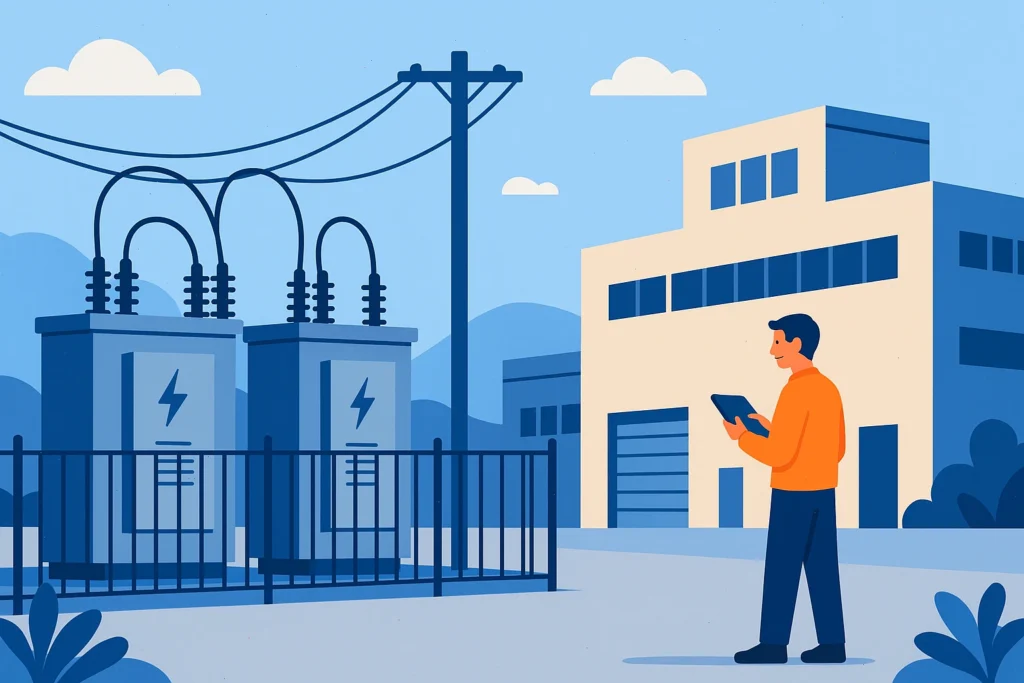
As the world’s demand for electricity surges due to technologies like artificial intelligence and electric vehicles, the strain on the electrical grid is becoming increasingly evident. To help address this challenge, a startup named Yottar has developed a platform that maps electrical grid capacity, enabling companies to identify where they can safely connect new power-hungry equipment, including data centers, EV charging stations, and other energy-intensive installations.
Meeting the Demands of a Growing Energy Market
“The electrification super cycle is colliding with the AI data center boom, and grid operators are struggling to handle the backlog,” said Peter Clutton-Brock, Yottar’s co-founder and CEO. He explained that in certain areas, such as around London, almost all the capacity suitable for large-scale data centers has already been allocated. “It’s not just a matter of whether there’s spare capacity,” he noted, “it’s about when upgrades will be completed.”
As older electrical grids face mounting pressure, startups like Yottar have emerged to help energy users navigate these limitations. While some companies focus on discovering unused capacity that already exists, convincing utilities that more space is available than previously stated, Yottar takes a slightly different approach. Instead of debating existing capacity, it creates detailed maps showing exactly where capacity exists and how much power is available at specific locations.
Targeting Medium-Sized Energy Users

“There are other players in the field, but each focuses on different use cases,” Clutton-Brock explained. Yottar primarily serves medium-sized demand developers, meaning companies that consume electricity rather than generate it. Typical projects range from 1 to 5 megawatts in scale.
Supporting Major Clients
Among Yottar’s customers are Tesla and the U.K.’s National Health Service (NHS). Tesla uses Yottar’s platform to select sites for new Supercharger stations and upgrade existing ones. Similarly, the NHS relies on the platform to identify hospitals and clinics suitable for EV chargers and to plan solar panel or battery installations, as well as new radiology units. Clutton-Brock emphasized the importance of efficiency: “They can’t afford to check each site individually.”
Recent Funding and Platform Features
The startup recently raised $1 million in a pre-seed round, led by Haatch with participation from Cape Capital and angel investors. Yottar is also launching a new feature that quickly identifies locations capable of supporting upgrades or new equipment, streamlining planning for its clients.
Data Sources and Pricing Model
Yottar gathers much of its data directly from distribution networks, which are required by regulators to share this information. Additionally, the company licenses private data and updates its records using anonymized information from successful grid connections made by customers. Currently, clients pay a per-seat fee plus a usage charge based on the number of sites evaluated. At present, consultants represent Yottar’s main competition. “For smaller-scale developers, consulting alternatives are often impractical,” Clutton-Brock said.
Looking Ahead
While Yottar currently operates in the U.K., the company plans to expand internationally, including into the U.S. Clutton-Brock highlighted the global nature of the challenge: “This is truly an international problem that requires an international solution.”






